Julian Lennon on John, Paul, "Hey Jude," Yoko...and Love
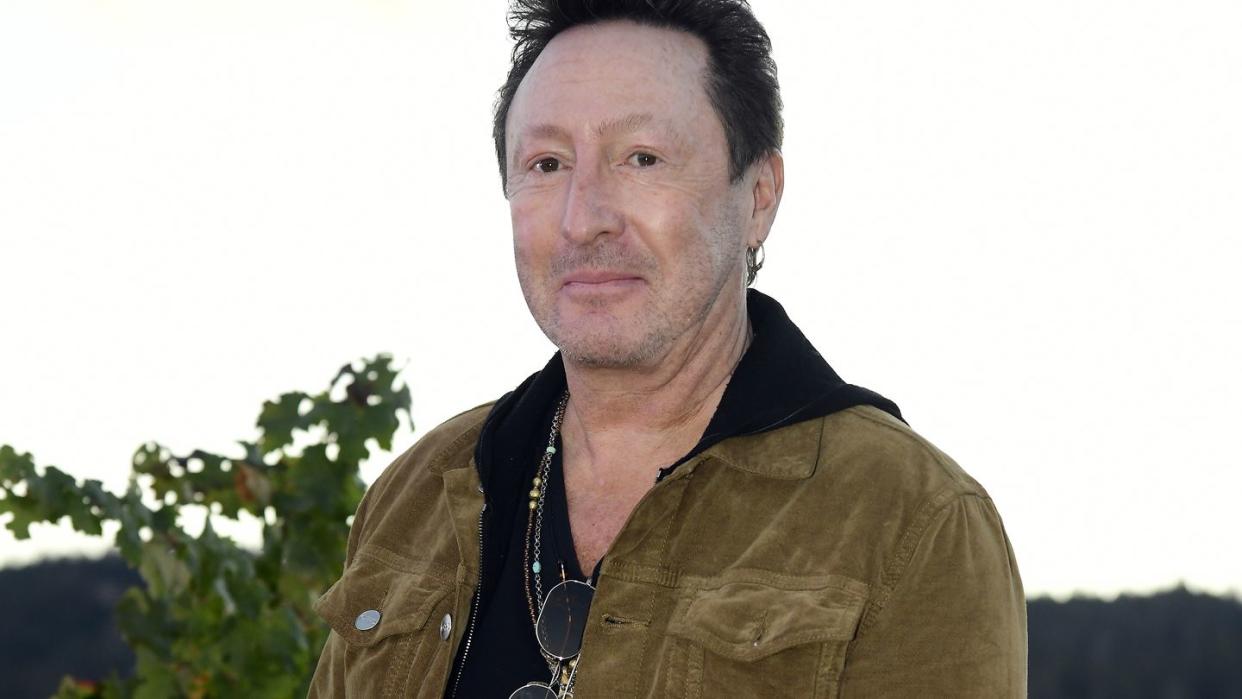
- Oops!Something went wrong.Please try again later.
- Oops!Something went wrong.Please try again later.
- Oops!Something went wrong.Please try again later.
- Oops!Something went wrong.Please try again later.
- Oops!Something went wrong.Please try again later.
The day the Julian Lennon album Valotte was released in 1984, my older brother and I pooled our lawn-mowing money and rode our bikes to Record Express in West Hartford, Connecticut. Our local top-40 station, 96.5 WTIC FM, was playing “Too Late for Goodbyes” every other song—MTV too—and we had to have it.
I still have the album. He’s on the cover, black-and-white, sitting backward on a chair, staring out at you, unsmiling. I know now, though I didn’t know then, how much he looks like his father in that shot. I was 9 years old. The album was probably my gateway to the Beatles, the first lesson in an education.
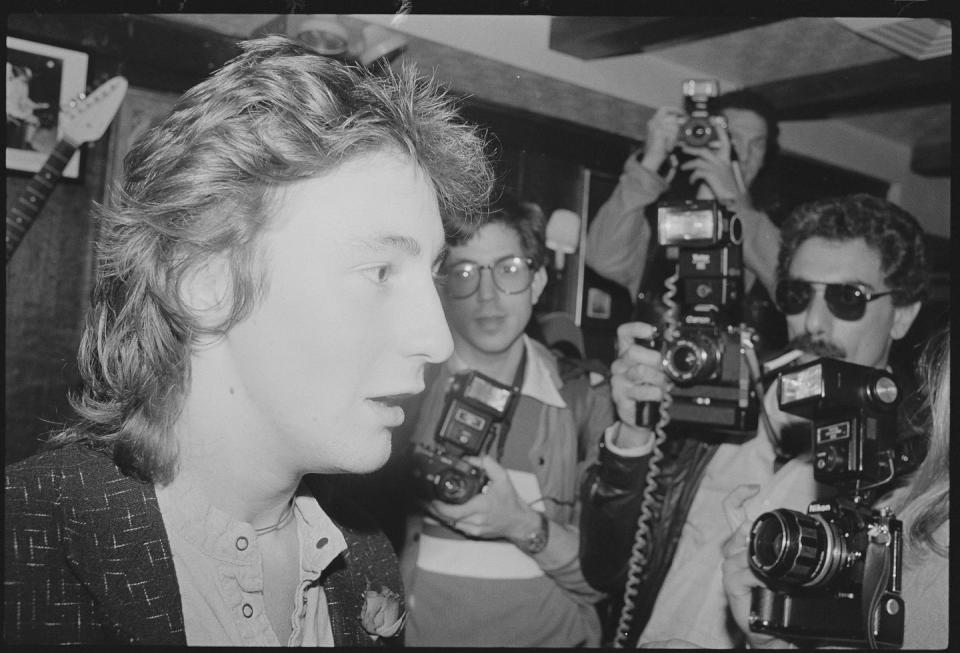
A year ago, I interviewed Lennon. The Beatles documentary Get Back had just come out, and Lennon had seen it with his half-brother, Sean. (Sean’s mother is Yoko Ono; Julian’s was Cynthia Powell, John Lennon’s first wife.) The interview was meant to be part of a larger project about what it’s like to have a song written about you. “Hey Jude” was written by Paul McCartney about Julian and Cynthia; a friend of mine, Chadwick Stokes of the band Dispatch, had recently written a song about me and my family and some hard times. That project is for another day; here, now, is my interview with Lennon. In it, he told me about his new record that was coming out. The title: Jude.
Esquire: The lore, of course, is that Paul wrote “Hey Jude” as consolation when your parents were splitting up.
Julian Lennon: It was “Hey Jules” at first, but that didn’t quite sit well rhythmically. “Hey Jude” was a better interpretation. Paul wrote it to console Mom, and also to console me. It’s a beautiful sentiment, no question about that, and I’m very thankful—but I’ve also been driven up the wall by it. I love the fact that he wrote a song about me and for Mom, but depending on what side of the bed one woke up on, and where you’re hearing it, it can be a good or a slightly frustrating thing. But in my heart of hearts, there’s not a bad word I could say about it.
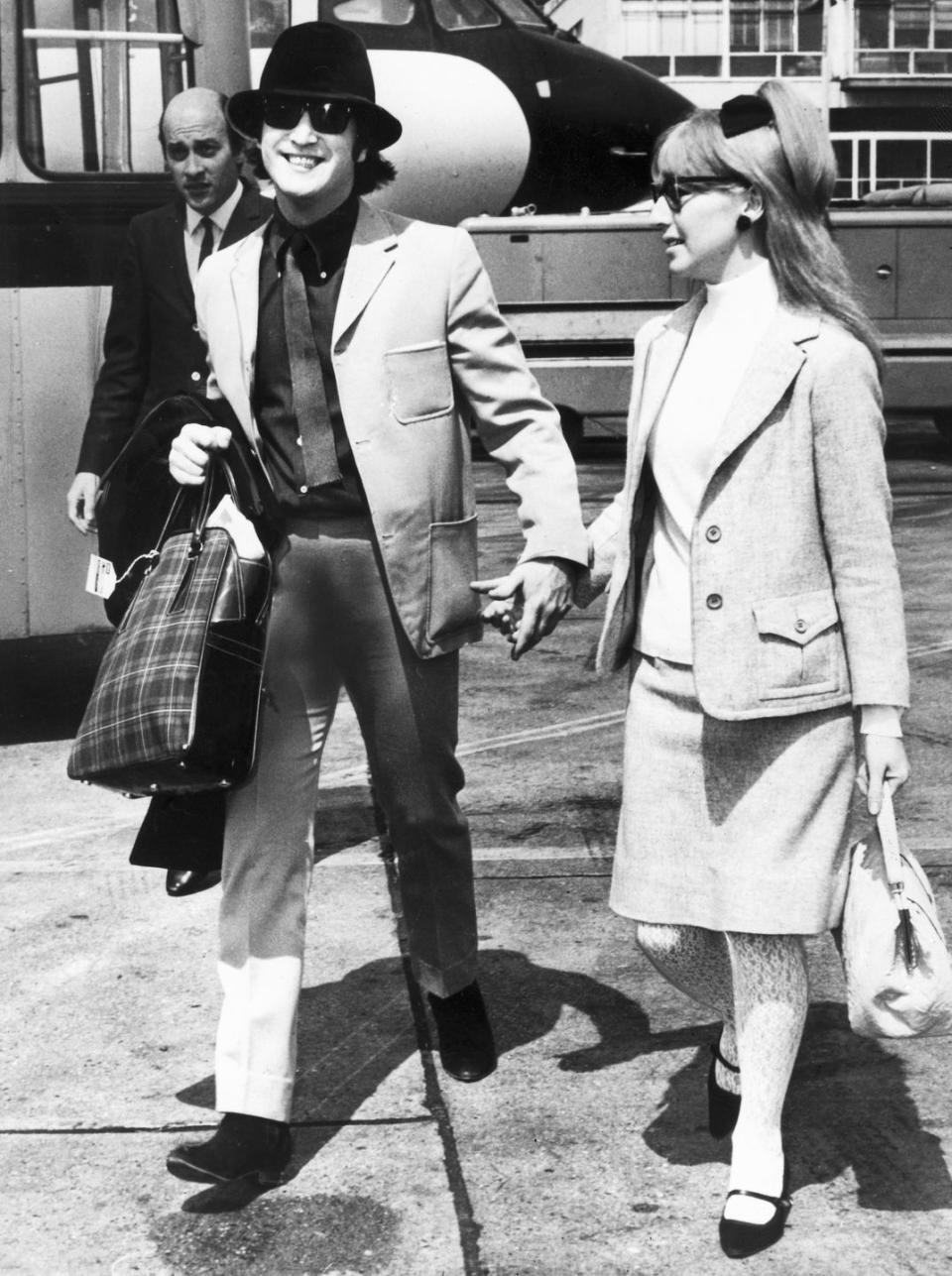
The lyrics are pertinent even now. They’re about making life better and taking the weight off my shoulders, especially on the path I followed as a musician—following Dad. It’s like, what are you, crazy? Why would you do that? I’ve chosen the hardest road known to mankind to follow, but that’s why after thirty years of doing music I felt it was time to follow some other dreams I had. Photography and a number of other things. The music will always be in my blood and that’s partly due to Dad and it’s partly due to the Beatles, especially after having watched Get Back.
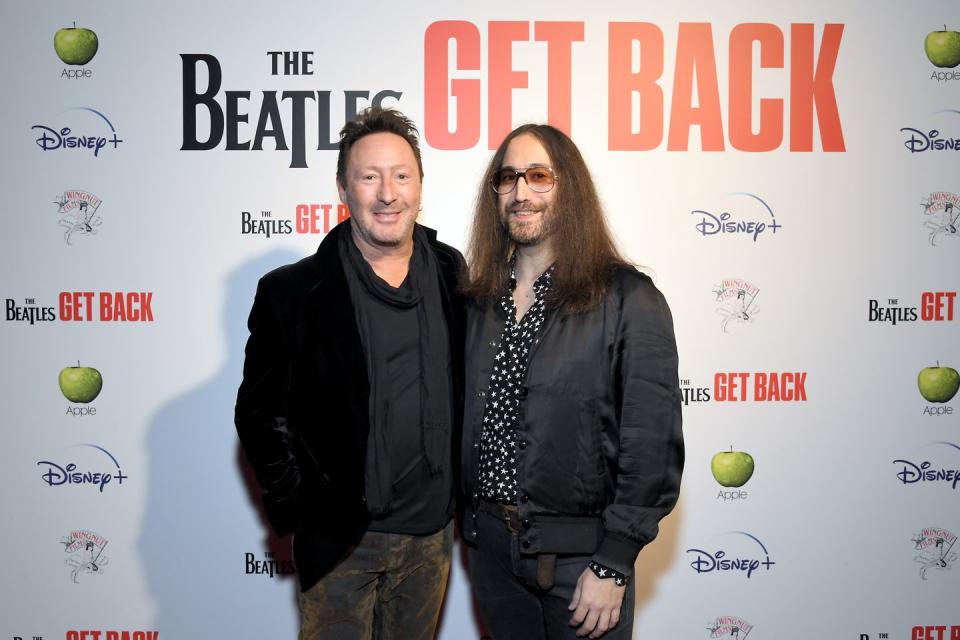
Sean didn’t really want to go to the Get Back premiere. He felt overwhelming pressure. And I didn’t particularly want to go. But he said he felt obligated to go, so because I love him so much I said, Listen, I’m coming with you. We’ll face the demons together. And it’s funny because there’s always been, especially in the UK press, ‘Lennon Sons Feuding,’ this, that. We’ve never had a fight in our life. It’s such bull.
I posted lots of happy pictures of us doing nothing but smiling, laughing, and acting like idiots. This was important for me and for the peace and for family, because there has been friction, no question, in the past between everybody. But we’re all getting a bit older, and as we get older we lose people and we realize now what’s most precious in life.
The love for Sean, and the love for Yoko, and Stella, and Paul, and Mary, and Dhani, and Zak—it’s a big old, weird family. But as they say, families are always a bit screwed up.
Watching Get Back, I fell in love with my father again because I saw him as he was, as I remember him as a kid, before it all went a bit pear-shaped. I came away feeling so proud to be a Lennon. I’ve always pushed it away a little bit, trying to forge my own path, but after this I’ve just now taken on this new mantle of like, fucking, I’m so proud to be part of the legacy and history of what went before and hopefully going to do some justice in carrying on with that.
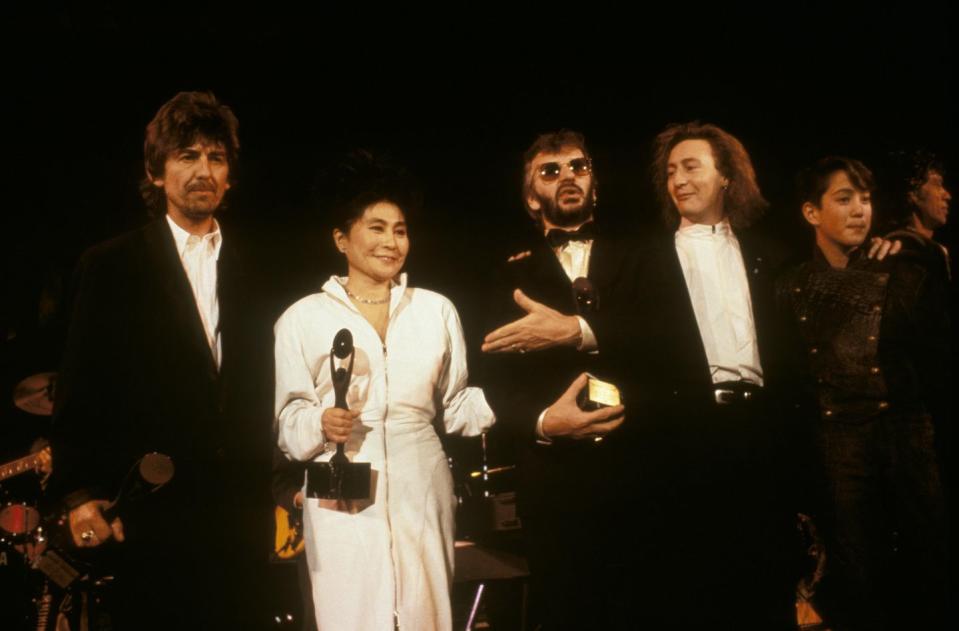
Esquire: What was the first music you remember hearing?
Lennon: “Whiter Shade of Pale.” I was three, I think. I remember going, I kind of like this. Songs bring you back to the time and the place. It’s true with “Hey Jude.” The weird thing with the audience is they think it’s cute sometimes, quoting “Hey Jude” to me, but I don’t think they realize there’s a lot of pain behind what happened. Every time you quote that, it reminds me of my mother being separated from my father, the love that was lost, the fact that I rarely saw my father again ever. I saw him maybe a couple of times before he died. A lot of people don’t quite get how intense, how emotional, and how personal that is. It’s not just a “pick yourself up and dust yourself off and be happy.” There’s deep emotional pain. I can celebrate it—but also it’s something that’ll always be dark to me.
It’s not a position where forgiveness comes into it. It was just a time and a place in my life where things happened. Who knows if I’ve dealt with it? Maybe I haven’t. Do I need to do therapy? No, I think life is therapy enough. So, it’s a weird one.
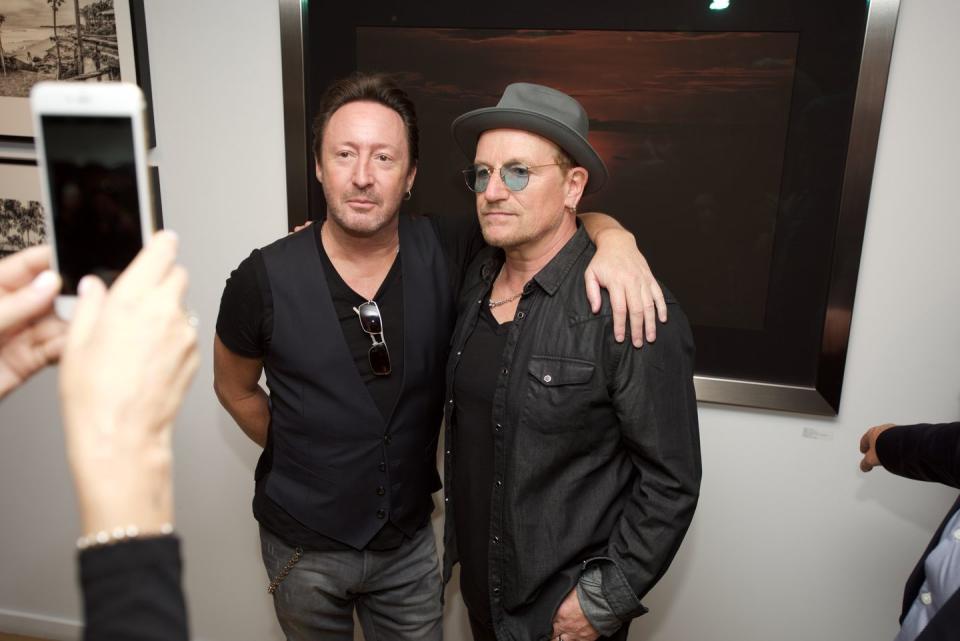
Esquire: What do you remember from before “Hey Jude”?
Lennon: I remember being five at a house in Kenwood in Surrey, because I remember my birthday cake was a steam train. I had an obsession with an American black-and-white TV show called “Casey Jones.” Casey Jones was a steam train driver. I remember the table and the kitchen where we were at. There’s a picture of Dad standing there with a hoe—I mean that in the gardening sense—and I’m in a baby chair and Mommy’s sitting down with her hair poofed up.
I knew there were strange people coming to the house. As a kid you’re going okay, this is quite exciting. I was very, very shy and I remained shy. I’m still working through the shy thing, believe it or not. In the last few years I’ve been pushing myself to stop being afraid. I’ve always had to have some kind of defense system. People in the outside world think that I spent time a lot with Dad as a kid and that money was available. That was never the case. Not ever the case.
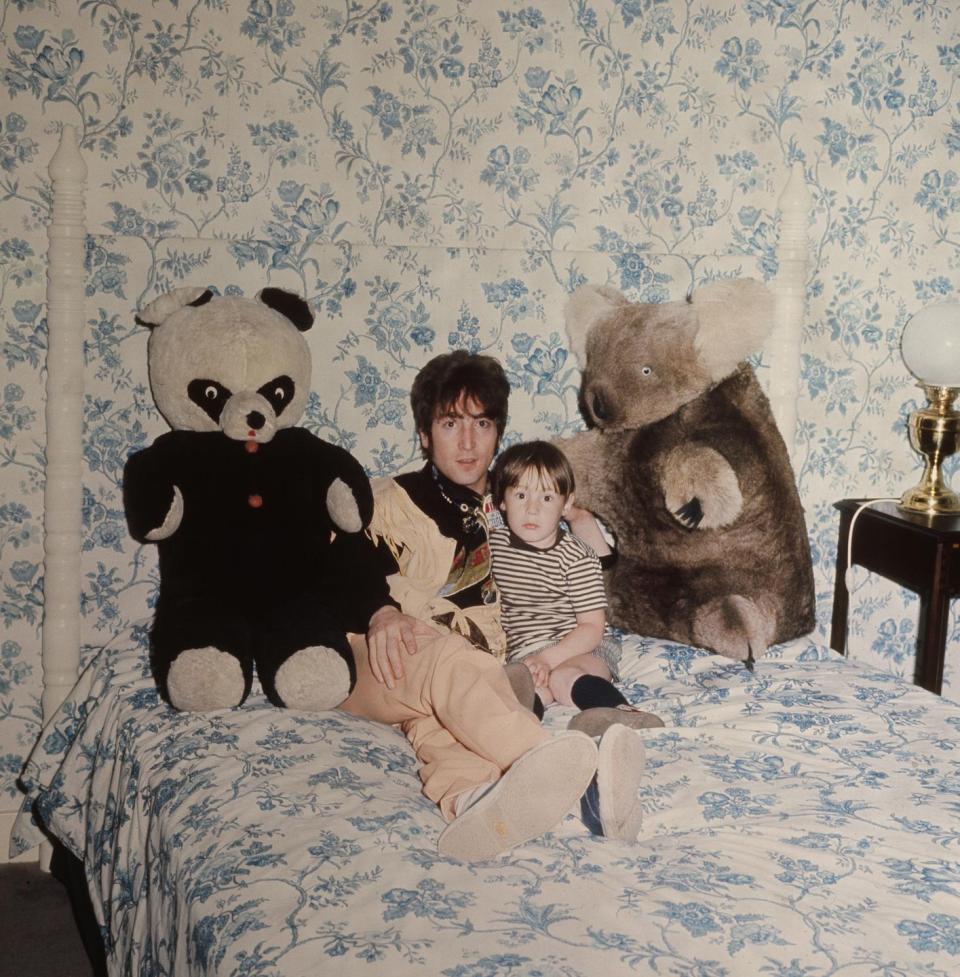
Esquire: Really?
Lennon: No. When they separated, Mom made her own way and I’ve made my own way. I mean, there was some stuff that came in, like some weird pocket money at some point, but for the most part, we’ve just pushed ourselves to stay alive and fight off all the rumors.
I think Mom was wondering, how do I keep the family going? I don’t have a husband anymore. I’ve got to look after Julian. It was a struggle for her, and I think partly the reason why I am the way I am is because there was so much grace and dignity on her. She was without question my beacon, my hero. The only person I really looked up to.
Esquire: Have you written a song about your mother?
Lennon: There was a song called “Beautiful” that I dedicated to her and everybody that I’ve lost. There are more songs that lean towards how I feel about her and how proud I am of her and what she had to deal with and put up with, and what she had to do to stay alive. My grandmother used to collect lots of antique China, I asked Mom once what happened to it all. She ended up having to sell all of her mother’s stuff just to keep above water and keep me clothed and in school.
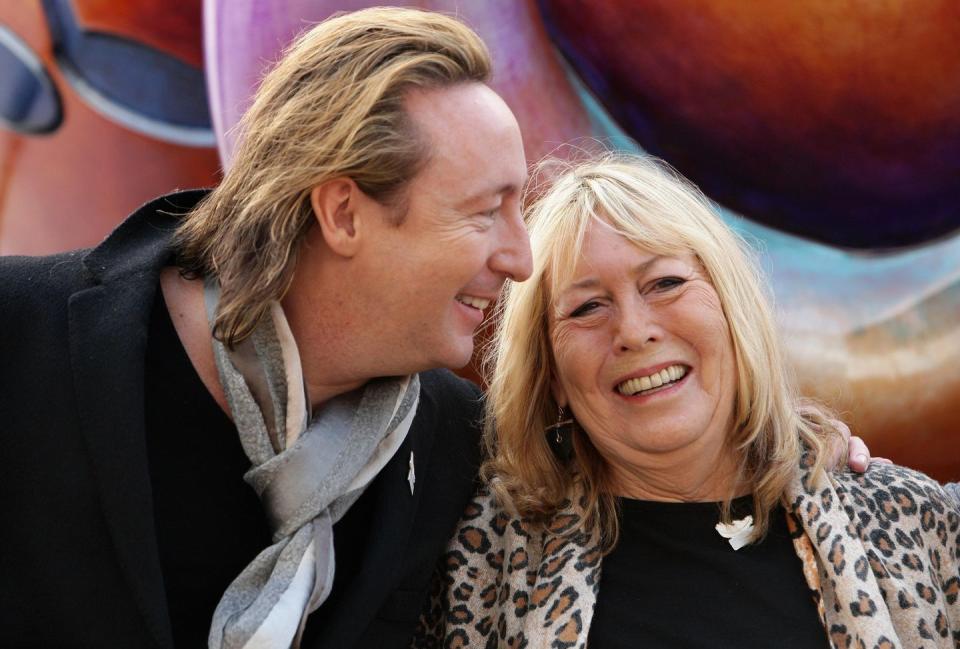
Then when I heard about Dad being murdered—she was in London at the time, and she came back home later that day—the number one thing on my mind was: Make sure she’s okay. Listen, she was the one that was married to him, went to art school, lived with him, probably was still in love with him. Even I recognize that there’s a part of me that still loves everybody I’ve been in love with. That never goes away.
Esquire: So she then returned home?
Lennon: I was at home with my stepfather at the time, who I was not particularly fond of. She told him, “Don’t tell Julian until I get home. Let me tell him.” The problem was, as I was walking down the stairs—I had a bedroom in the attic and her bedroom opened up onto the street below, of the town we were in, and I just saw hundreds of photographers, and I went, Okay something is up. I was like 13.
Esquire: Did “Hey Jude” change for you after that?
Lennon: Initially I think the concept of the song was about Mom. But then it came to me, and what the hell I was going to be dealing with later on in life. [Paul] wasn’t wrong in all the crap that I’ve been through. It’s not been smooth sailing in any way, shape, or form. I’ve always put a brave face on for the most part, but it’s been a traumatic life. No question about that. I’ve worked my way through all those episodes and traumas. I think that’s the saving grace about getting old—although I hate even using the word old. Age doesn’t mean anything to me. Age, for me, as long as you’re pretty healthy and of sound mind for the most part, is about wisdom and experience and how things relate to you now and what’s important in life now.
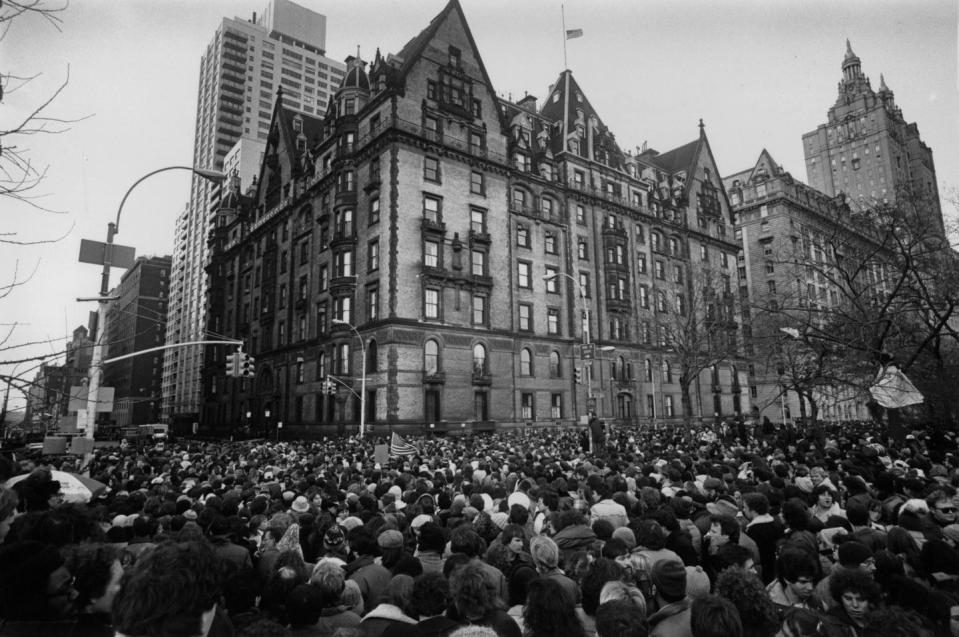
“Hey Jude” probably has more importance to me now than it ever did.
Esquire: Some of the best works of art come from pain and trauma. Your photography is extraordinary, and every picture you take, I have to think, comes from a lifetime of experience that’s entering every shot.
Lennon: Very much so. It’s having been on the other side of the camera when it comes to musicians I’ve been around, or actors I’ve been around, and trying to capture the essence, the truth. Not one of my pictures is set up. I could never do a fashion shoot. It has to be street photography, guerilla, where it’s something that moves me at a certain point in time and I feel I have to capture that as it’s happening, as the reality of its happening.
As a kid, I was climbing trees, on a dirt bike going through rivers, you name it. I had a great love for the outdoors, and Mom always appreciated that. It confuses me why other people don’t see how beautiful this world is, and that we’re the parasites on this planet screwing it all up for everyone. It’s a real shame. Covid has been a turning point. Things are polarized where it’s either all these self-entitled kind of people—the selfie crew on crack—or these people who are finally going, Don’t you realize what we have? How beautiful it is?
Esquire: Let’s talk about the new record, Jude.
Lennon: You want to talk about coming to terms with yourself and life emotionally, and musically? On the cover is a picture of me at the age of somewhere seven or eight, when I started becoming Jude for real. And now being in a place where I’m probably more comfortable being who I am, whatever that means.
The majority of it came to fruition because of the isolation I felt, and having to get to know myself more than ever, during covid. When it was just me. I was all I had. And so you’re looking at yourself in the mirror and facing every demon you ever had and you’re either going to find a dark spot to hide in or you’re going to explore all these avenues—be who you want to be finally, stop being afraid. That’s, again, tied into “Hey Jude.”
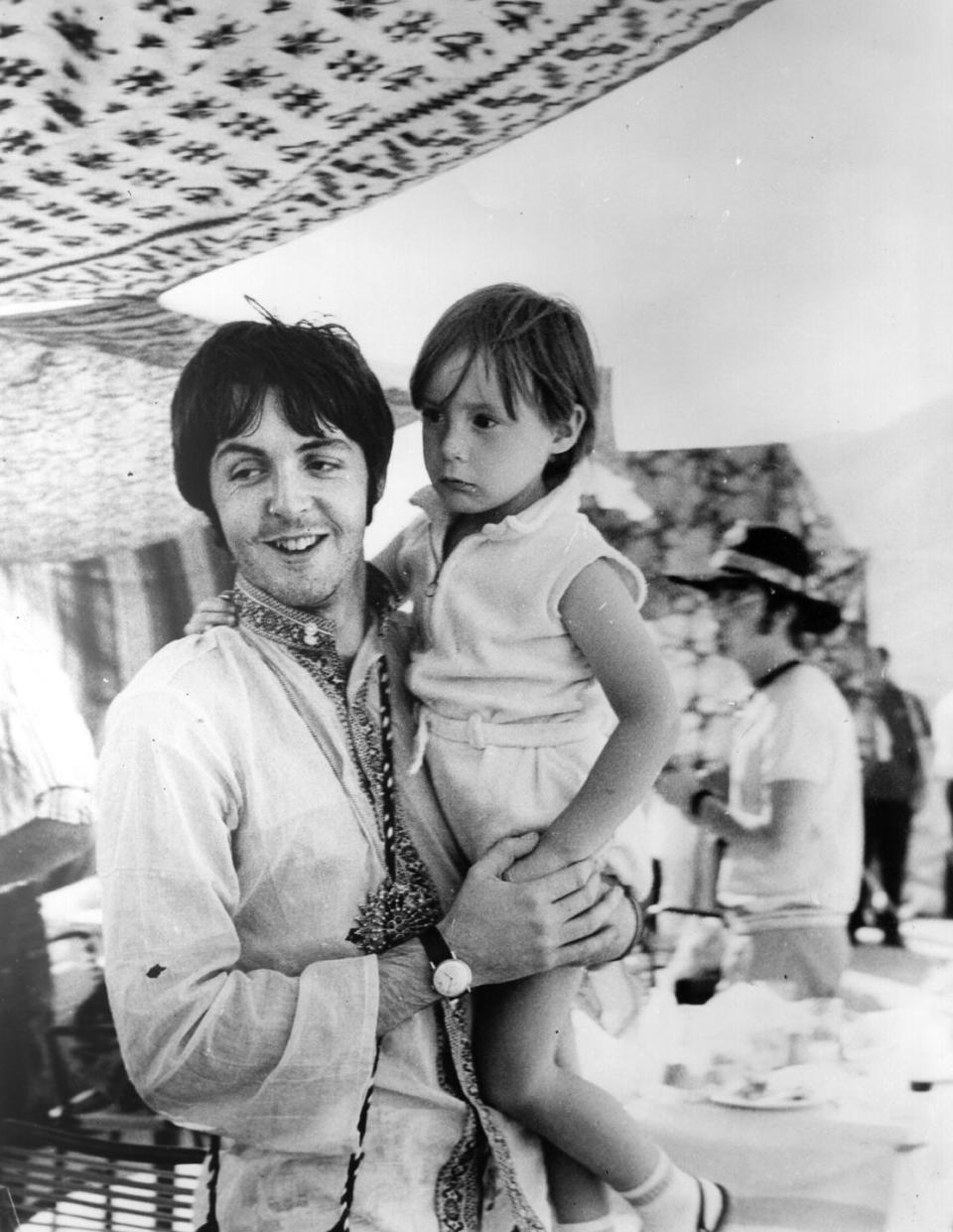
So, I’ve really done a 360. When the label said, Do you have a title? I said yeah. I told them and they all had the same reaction: Oh, wow. Okay. So, this is not just a pop-out.
It’s good because it’s about letting go of all the heavy stuff and going, You know what? It’s all been a learning curve but well worth it. As difficult as it’s been, it’s been worth the slog and the pain and the sorrow. You wish some things had been different, but those things you cannot change. So, there’s no point living in the past in any way. No point to that. Just take what you have, all the goodness, the wisdom that you’ve experienced and learned, and try to be happy. That’s all I do now. I know it’s maybe a little selfish, but I like to be happy as much as humanly possible and like to make sure that my friends and the people who I love are happy. You’ve got to respect everything and in turn things will respect you—the planet will respect you. So, it’s one big ball of love. Dare I say that?
You Might Also Like

